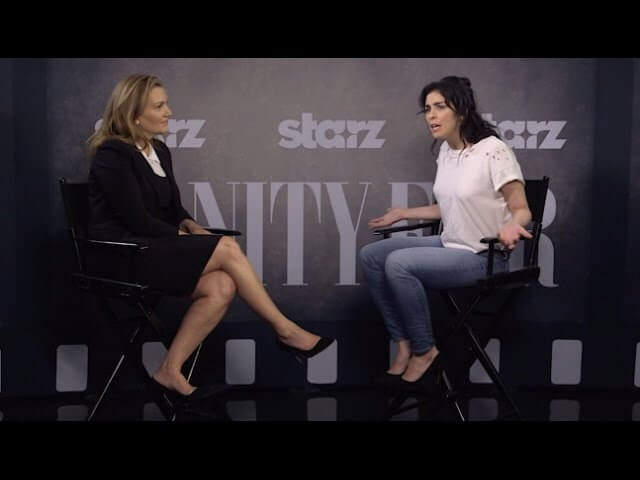Sarah Silverman sides with college students in the great P.C. wars

Sarah Silverman is the latest comedian to weigh in on the current debate about “P.C. culture.” But unlike Jerry Seinfeld, Chris Rock, Patton Oswalt, and Bill Maher, who all think political correctness is destroying comedy as we know it, Silverman is hip with the P.C. kids. Or as she puts it, “You have to listen to the college-aged because they lead the revolution. They’re pretty much always on the right side of history.”
Silverman discussed the topic during an interview with Vanity Fair about her new film I Smile Back. She starts out by referencing Caitlin Flanagan’s Atlantic article that bemoaned the way “the infantilization of the American undergraduate” has forced comics to either “create the cleanest possible set” or to not perform on college campuses at all.
But Silverman doesn’t think that changing with the times is that big of a deal. For instance, she once fought for her right to use the word “gay” pejoratively but then one day asked herself, “‘What am I fighting?’ I have become the guy from fifty years ago who says ‘I say colored, I have colored friends!’” As she points out, more often than not making little adjustments is actually pretty easy. Stopping herself from using “gay” as an insult “didn’t take long” and now she “[doesn’t] even think about it.”
She acknowledges this is still something of a gray area for her but explains:
To a degree, everyone’s going to be offended by something, so you can’t just decide on your material based on not offending anyone. But, I do think it’s important, as a comedian, as a human, to change with the times. To change with new information. I don’t think there’s anything wrong with changing with the times. I think it’s a sign of being old when you are put off by that.
It’s pretty basic stuff, and an apt description of the process by which comedy has historically moved away from the kind of humor we now (mostly) all agree is offensive—including minstrel shows and jokes that end with “a woman’s place is in the kitchen.” In other words, as much as this feels like a P.C. revolution, it can also be seen as the natural evolution of American culture. And Silverman isn’t quite as freaked out by it as some of her peers: